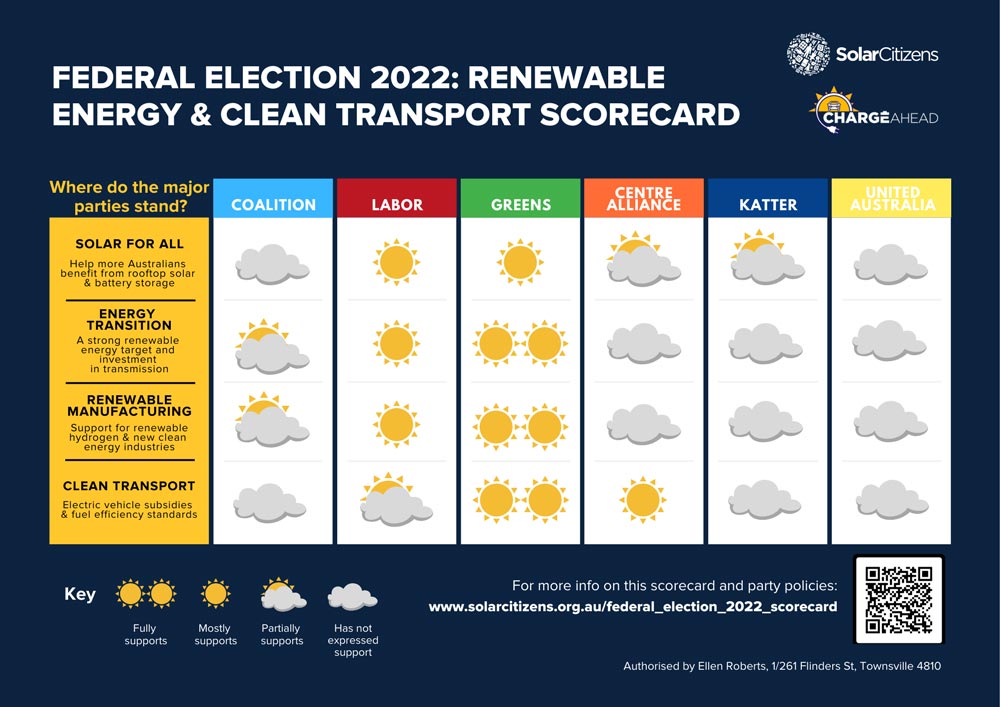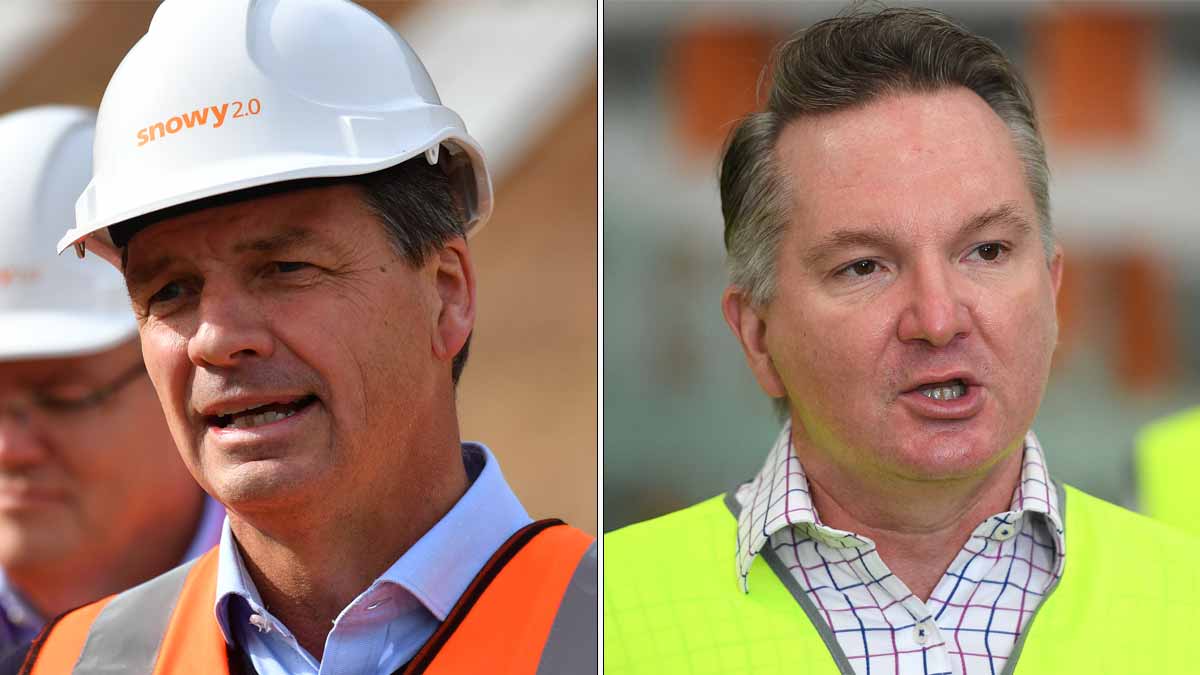Just a week out from election day, it now appears clear that Australians will go to the polls without a ministers’ debate on climate and energy policy – an issue that ranks as a high priority for voters and one that could dominate the next parliamentary term.
On Friday, the National Press Club hosted a foreign minister’s debate between minister Marise Payne and Labor’s Penny Wong.
It followed earlier debates between existing and prospective treasurers, defence ministers and agriculture ministers. Next week, the Press Club will hold a debate between crossbenchers.
But there will be no debate between energy and climate ministers.
Australians deserve to hear representatives of the major parties present – and justify – their respective approaches to cutting emissions, lowering energy costs, transitioning our energy system to cleaner energy sources, and providing a just transition for workers.
The debate on these issues is far from settled, and polling shows climate change and energy will be a significant factor for voters deciding who they will support.
The far-reaching importance of climate policy was evident during Friday’s debate.
Both Payne and Wong were peppered with questions about international climate policy, in apparent recognition of the importance of the issue to Australia’s international standing, particularly with Pacific region neighbours.
These are the kinds of questions that the Coalition’s energy and emissions reduction minister Angus Taylor, and Labor’s prospective minister Chris Bowen, should also be made to answer.
A recent analysis published by think tank Climate Analytics shows the emissions reduction targets of both the major parties falling short of what is required to meet the goals of the Paris Agreement.
The analysis shows the Coalition’s 26 to 28 per cent emissions target for 2030 putting the world on track for almost 4 degrees of global warming. While Labor has adopted a stronger 43 per cent reduction target for 2030, it was still consistent with more than 2 degrees of warming.
Both major parties say they are committed to the Paris Agreement and a net zero target by 2050, but neither has demonstrated those commitments with appropriate policy.
Scientists warn that failing to achieve the Paris Agreement goals will lead to more extreme weather events like bushfires, droughts and floods – all of which are already devastating Australian communities with increased frequency.
This has left a policy gap that has allowed a new wave of ‘teal’ independents to launch effective challenges to incumbent Coalition members.
The ‘teal’ independents are clearly seeking to tap into a desire amongst many voters to send a message to the Morrison government that they have failed on climate policy.
But another aspect of the independents’ proposition to voters is the potential to push a future Labor government to adopt stronger climate policies.
Just as the independents are being pressed to say whether they would support the Coalition or Labor in a hung parliament situation – the major parties should outline what deals they might strike on climate policy to form government.
Interconnected with climate change is the issue of energy policy.
With cost of living concerns featuring as the core election issue, the surging price of fuel, electricity and the transformation of Australian energy export industries also deserves significant scrutiny.
While some news outlets have sought to provide analysis of the party’s respective climate policies, others have sought to feed the further politicisation of the issue.
This remains notoriously true for News Limited papers that have uncritically echoed Coalition talking points about Labor’s proposed investments in new transmission network infrastructure and a reheated scare campaigns about a ‘carbon tax’.
Both parties are promising to spend billions on new projects to reshape Australia’s energy system. But with the parties pushing in different directions – the Coalition backing their ‘gas led recovery’ and Labor seeking a delicate marriage between renewables and coal, Australians deserve to hear prospective energy ministers justify their proposed expenditure.
To its credit, The Australia Institute attempted to fill the gap by hosting its own energy minister’s debate, extending invitations to both Taylor and Bowen.
But Taylor refused to participate in the debate, leaving Bowen with essentially a free-kick to promote Labor’s policy platform.
Exacerbating the issue is the fact that most ‘mainstream’ media outlets have focused their election coverage on the day-to-day theatrics of the election campaign, rather than deeper scrutiny of the policy platforms the parties stand on.
For example, earlier this month, Labor leader Anthony Albanese attended the Smart Energy Conference in Sydney. The election press pack had an ideal opportunity to question Albanese on Labor’s climate and energy policies.
But the doorstop press conference devolved into a farce that didn’t reflect well on either the press pack or the opposition leader when the press pack pursued another ‘gotcha’ moment when Albanese failed to recall the components of his NDIS policy, all while standing in front of an electric truck.
Neither Taylor nor Scott Morrison made an appearance at the Smart Energy Conference, but this fact was lost in the quest for an awkward election moment.
In the end, Australian voters are heading to the polls without the opportunity to hear the major party representatives present their party’s positions on a major and urgent global issue and to hear prospective ministers defend those positions under questioning.
Meanwhile, Solar Citizens has offered its assessment of the respective policies, which might provide some insight into why the Coalition is reluctant to debate the issue.











